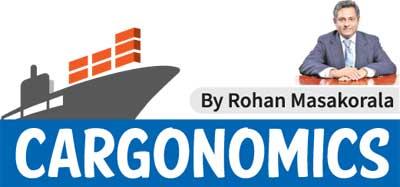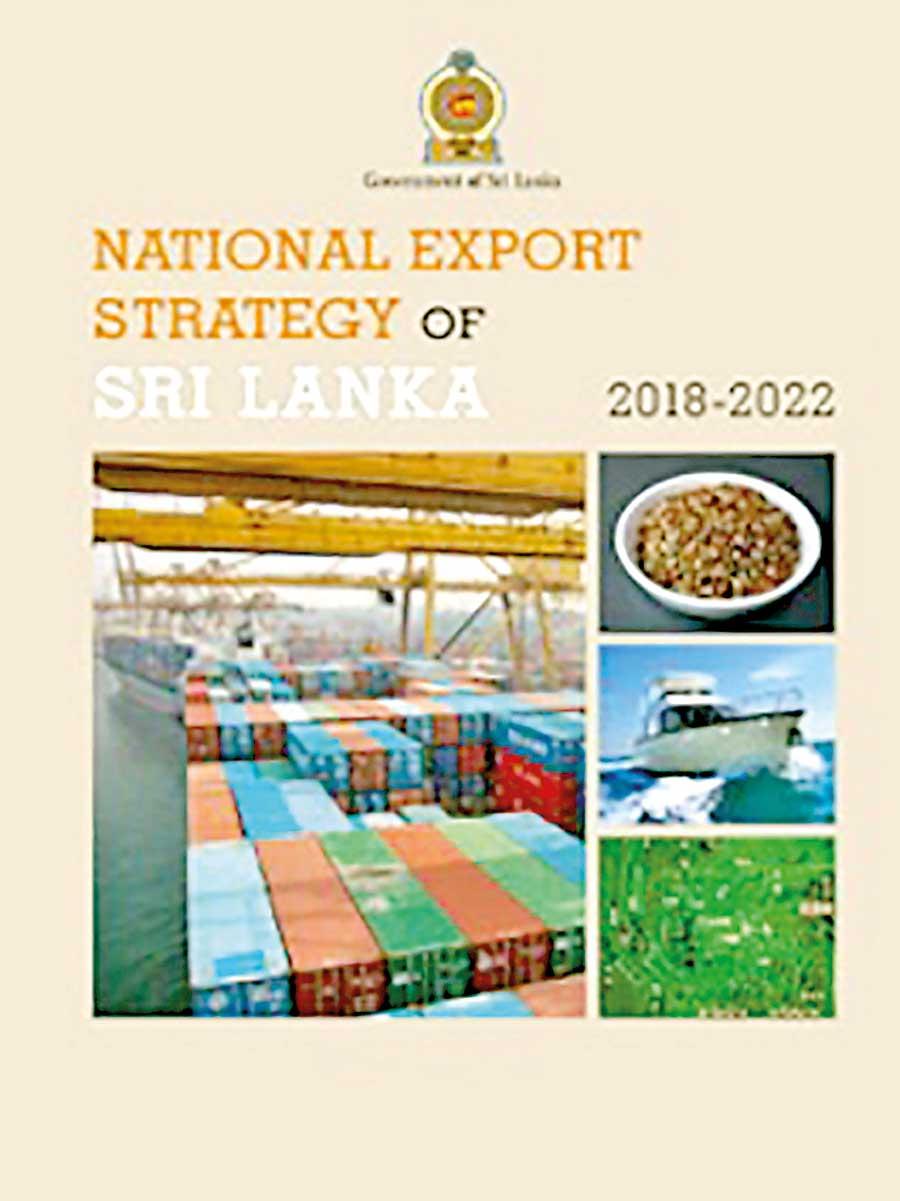20 May 2024 - {{hitsCtrl.values.hits}}
At a time at every forum it is mentioned that exports are the way forward to cure Sri Lanka’s economic downfall, National Export Strategy (NES) of Sri Lanka 2018-2022 was developed in alliance with the National Trade Policy. This document was presented to the Sirisena and Gotabaya governments and both Cabinets approved it for implementation as a priority.
alliance with the National Trade Policy. This document was presented to the Sirisena and Gotabaya governments and both Cabinets approved it for implementation as a priority.
The five-year plan should have been completed in 2022. However, to this date, many cross functional ministries and heads of institutions are not aware of the documents to say the least.
According to the Export Development Board website, “The NES was to be the catalyst that drives the economy, stimulate growth and job creation by improving the ability of firms to export and compete in foreign markets.
The NES is a top-down and bottom-up process that consolidates national and sector priorities into a comprehensive implementation framework. The main NES aggregates and consolidates national priorities as well as major high-level priorities from each sector and their trade support functions into a coherent framework.
Built on the feedback from the entire export community about the upcoming tasks and the heaviest roadblocks that require to be dislodged. The NES defines a detailed road map for faster export growth and acknowledges the requirement of a novel outlook and a process to increase the contribution of trade to economic development.
How will NES benefit Sri Lanka?
Logistics was a key development to assist export growth as identified by the NES.
It said, “The development of the logistics industry in Sri Lanka is a five-year endeavour that was defined through a consultative process between the public and private sector stakeholders. transforming Sri Lanka into a leading maritime, logistics and distribution hub in the Indian Ocean will depend heavily on the ability of the industry to implement activities defined in this strategy.”
We for now in the year 2024, the NES is yet to be implemented. All the exports have been identified as the key drivers for economic growth and exports have been stagnating and struggling for the past eight years to cross the dollar 12 billion while India, Bangladesh and Vietnam among others are marching on with investments and increased export activities since the beginning of the 21st century.
India unveiled NLP in 2022
The new logistics policy, first introduced in the 2020 budget speech by Finance Minister Nirmala Sitharaman, was unveiled by Prime Minister Narendra Modi in September 2022. The National Logistics Policy (NLP) seeks to address the challenges facing the transport sector and bring down the logistics cost for businesses from 13-14 percent to a single digit. At a launch event, Modi said the policy aims to expedite the last-mile delivery, helping businesses save time and money and make India more competitive.
“We are the world’s fifth largest economy. India is setting new targets for exports and we have been able to achieve those targets. India is emerging as a global manufacturing hub and the world has started recognising that fact. NLP will provide a fresh impetus to it,” said Modi.
Today, India being a fully liberalised nation for shipping and logistics has opened its coastal shipping industry as well and a number of projects are being carried in all parts of India to reduce the logistics cost while billions of dollars of foreign direct investments are being pumped into the economy by the global shipping and logistics giants.
B’desh rolls out debut logistics policy 2024
In a latest development, Bangladesh has formulated its maiden logistics policy to achieve sustainable economic growth by increasing domestic and global trade and investment capacity through construction of a world-class technology-based, time and cost-efficient and environmentally friendly logistics system. Prime Minister’s Office on April 28, 2024 published the gazette, with policy targets reducing delays and costs across logistics services, fostering efficiency from production to distribution, based on global standards. The NCLD, led by the Prime Minister, will guide policy implementation and amendments, while the NLDCC, headed by the principal secretary, will monitor progress.
Lost NES of Sri Lanka
Sri Lanka’s only comprehensive logistics policy developed with the International Trade Centre, Geneva, along with many other sectors of the NES in 2018, is now in a NEST that no one knows who is in charge or whether there are any plans to seriously revive a new strategy with leadership, as the environment of the country has changed so much since the economic meltdown and many exporters are finding it difficult to sustain business.
On the logistics side, Sri Lanka remains the only transshipment hub in the whole of Asia that is closed for foreign ownership in its key business of freight management for shipping and logistics. As a result, the sector contributes extremely a small figure of about 2.5 percent to the national GDP (dominated by the port terminal business and the trade freight bill) while the countries with open environment, the sector contributes well over 8 to 10 percent of GDP as the value-added business with global partners have moved beyond the port.
For example, Dubai’s Jebel Ali Free Zone had a US $ 104 billion-dollar turnover in 2018. Sri Lanka, with a natural location, has failed to capitalise, due to continued political protectionism.
(The writer, an economist by profession, with well over 32 years of experience in the shipping, international trade and logistics industry, is the founder of Shippers Academy International, a former Chairman of the Sri Lanka Shippers’ Council and First Secretary General of the Asian Shipper’s Council)

28 Nov 2024 50 minute ago
28 Nov 2024 1 hours ago
28 Nov 2024 3 hours ago
28 Nov 2024 3 hours ago
28 Nov 2024 4 hours ago